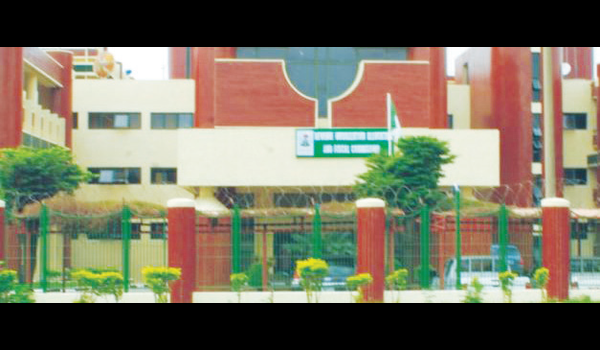RMAFC commences review of revenue allocation formula to reflect current economic realities
The Chairman of the Revenue Mobilisation Allocation and Fiscal Commission (RMAFC), Mohammed Shehu, on Monday announced the commencement of a review of the country’s Revenue Allocation Formula (RAF) among the federal, state, and local governments.
Speaking at a press conference in Abuja, Shehu explained that the review had become necessary given the nation’s current economic realities, noting that the last adjustment to the formula was carried out in 1992.
He said the objective was to produce a fair, just, and equitable sharing arrangement that reflects the present-day responsibilities, needs, and capacities of the three tiers of government in line with constitutional provisions.
Currently, the Federal Government receives 52.6 per cent of federally collected revenue, states take 26.7 per cent, and local governments get 20.6 per cent. Additionally, one per cent each is allocated to the Federal Capital Territory, ecological fund, natural resources, and stabilization fund under the vertical allocation structure.
Citing Paragraph 32 (b), Part I of the Third Schedule to the 1999 Constitution (as amended), Shehu reminded that the RMAFC is mandated to “review, from time to time, the revenue allocation formulae and principles in operation to ensure conformity with changing realities.”
“In line with this constitutional responsibility and in response to the evolving socio-economic, political, and fiscal realities of our nation, the commission has resolved to initiate the process of reviewing the revenue allocation formula to reflect emerging socio-economic realities,” he said.
He noted that since the last review, Nigeria has witnessed profound demographic, economic, and constitutional transformations. He cited recent amendments by the Ninth National Assembly, which devolved some responsibilities from the Exclusive Legislative List to the Concurrent List—including power generation and distribution, railways, and correctional centres—adding new financial and administrative burdens on state governments.
According to him, these shifts make it imperative to reassess fiscal federalism in order to promote economic growth, strengthen sub-national independence, and ensure equity, responsiveness, and sustainability across the federation.
Shehu assured that the review would be conducted through careful evaluation of service delivery obligations, fiscal performance, and developmental disparities among the tiers of government.
“The review will be inclusive, data-driven, and transparent,” he said, adding that it would involve broad-based consultations with critical stakeholders, including the Presidency, National Assembly, state governors, ALGON, the judiciary, MDAs, civil society groups, traditional rulers, the private sector, and development partners.
He further pledged that the commission would rely on empirical research, robust data, and global best practices in crafting a new formula that reflects Nigeria’s current realities.




